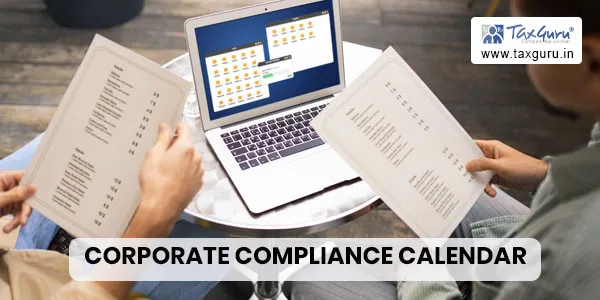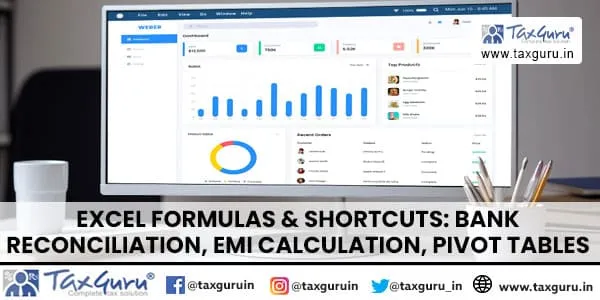Narender Sharma
 SEBI re-writes it’s more than two decades old Insider Trading Regulation and announced the new SEBI (Prohibition of Insider Trading) Regulations, 2015 on 15th January, 2015 which is to come in force on 120th day of its publication i.e., from 15th May, 2015 with many major changes in it.
SEBI re-writes it’s more than two decades old Insider Trading Regulation and announced the new SEBI (Prohibition of Insider Trading) Regulations, 2015 on 15th January, 2015 which is to come in force on 120th day of its publication i.e., from 15th May, 2015 with many major changes in it.
The Insider trading regulation took its role for the India Inc for the first time in the year 1992. Parallely, if we look at developed country like USA, they have no separate Regulation for Prohibiting Insider Trading. It relies instead on General SEC Provisions.
Now the questions comes to our mind are
Why SEBI has to take the move to re-write its old regulation??
Was there not enough provisions to catch hold the defaulters??
The problematic thing I look is,
- There were a number of loopholes in the prior version of the regulation which needed to be corrected.
- Drastic change in the technology and the way of doing business in Indian economy.
- Rampant Insider Trading.
- Give SEBI more power- combined with the new powers they have under the SEBI Act
The access to sensitive information with relates to the company’s operations and business being a big worry for the regulator. The intention is very clear to make the market more secure and to bring wrong doers in lime light. With this intention SEBI came up with the new Regulation.
With the Regulation not having so far, India Inc is trying to adopt it with many complexities in it. Corporate’s would face tough challenge to keep a track and monitor each and every movement of its employees, Directors and other personnel.
DEFINITIONS
Connected person: Reg. 2 (g)
Any person who is or has during the six months prior to the concerned act been associated with a company, directly or indirectly, in any capacity including by reason of frequent communication with its officers or by being in any contractual, fiduciary or employment relationship or by being a director, officer or an employee of the company or holds any position including a professional or business relationship between himself and the company whether temporary or permanent, that allows such person, directly or indirectly, access to unpublished price sensitive information or is reasonably expected to allow such access.
The persons falling within the following categories shall be deemed to be connected persons unless the contrary is established, –
(a) An immediate relative of connected persons; or
(b) A holding company or associate company or subsidiary company; or
(c) An intermediary as specified in section 12 of the Act or an employee or director thereof; or
(d) An investment company, trustee company, asset management company or an employee or director thereof; or
(e) An official of a stock exchange or of clearing house or corporation; or
(f) A member of board of trustees of a mutual fund or a member of the board of directors of the asset management company of a mutual fund or is an employee thereof; or
(g) A member of the board of directors or an employee, of a public financial institution as defined in section 2 (72) of the Companies Act, 2013; or
(h) An official or an employee of a self-regulatory organization recognized or authorized by the Board; or
(i) A banker of the company; or
(j) A concern, firm, trust, Hindu undivided family, company or association of persons wherein a director of a company or his immediate relative or banker of the company, has more than ten per cent of the holding or interest;
Observations:
- If we compare the definition with Regulation 1992, we would absorve that this time regulator tried to include vide variety of persons and designations which may involve in the functioning and operation with/in the company.
- With such wide coverage one can also include low level employees like housekeeping and sweepers who while doing their job get access to information and can be put behind the bars.
- By expanding the scope of the connected person, they have created several situations which only time will tell us to how it is going to play out but it is too wide a definition to be regulated. In fact SEBI itself will find it too difficult to regulate this kind of definition.
- Beware, if you are into frequent communication with your friends. SEBI now has acquired power to get call data record. So, they will figure out that there is so much of communication with this person.
Fare Fact:
The intent was to ensure that merely because a person does not hold any official position with a listed company but is otherwise completely involved with its operations and is an insider to decision making should not escape the scope and reach of the definition. This intends to treat even public servants and persons holding statutory positions that are reasonably expected to have access to UPSI as connected persons and thereby prohibit them from trading when in possession of UPSI
Generally Available Information: Reg. 2 (e)
Means:
“Information that is accessible to the public on a non-discriminatory basis”.
Information published on the website of a stock exchange, would ordinarily be considered generally available.
Observations:
- The very first thing one would interpret is that the definition is very wide in terms of information. It’s not just restrained with financials of the company but is much wider than that, including almost all information’s of the company.
- This is the new term defined in the regulation. In the previous regulation the term Generally Available Information were not used.
- Generally available means the information one can access as per the provision of law and which does not affect the market when published.
- One more interpretation can be made is that “the information can be called as generally available information when it is made available with the approval of its board as per the provision of law.
- But, one may be able to argue in an example of a news paper which has limited circulation say at some corner of the country, can it be considered as generally available information?
Fare Fact:
The intention of the regulator looks simple in the plain reading but when implemented would create lot more situations which required clear attention.
Immediate relatives: Reg. 2 (f)
It includes spouse of a person, and includes parent, sibling, and child of such person or of the spouse, any of whom is either dependent financially on such person, or consults such person in taking decisions relating to trading in securities.
Observations:
- Go away with the definition of relative as per the companies Act.
- The list of deemed connected persons is similar to the old regulation except that it alters relative to immediate relative including spouse and financially dependent parent, siblings or children. So, this expanded definition of connected person help SEBI cast a wider net.
Fare Fact:
The intention of the regulator is to reduce the number of relatives by bringing the aspect of immediate relative and those who are financially dependent.
Insider: Reg. 2 (g)
Means any person who is:
i. a connected person; or
ii. in possession of or having access to unpublished price sensitive information (UPSI);
Observations:
- The definition of connected person and insider has been expanded to cast a wider net and the burden of proof has also shifted. It is now up to the connected person to prove that he is not connected with the company and hence does not have access to unpublished price sensitive information (UPSI)
- Despite of the burden of proof lies on the connected person, it becomes much more easier to defend themselves. As per Regulation 4(1) the insider may prove his innocence by demonstrating the circumstances including the following:
- Inter-se transfer between promoters, both sides having the UPSI
- In case of non-individual insider – person making the trade different from person with UPSI etc…
- An insider is entitled to prove his innocent through a set of circumstances. Those circumstances which are not actually defined in the Act would suggest that if there is an absence of a mens rea (Guilty mind) – so you didn’t do it for the purpose of committing the fraud on the capital market which is really the underlying intent of this particular regulation.
Fare Fact:
It is intended that anyone in possession of or having access to unpublished price sensitive information should be considered an “insider” regardless of how one came in possession of or had access to such information. Various circumstances are provided for such a person to demonstrate that he has not indulged in insider trading.
Unpublished price sensitive information (UPSI): Reg. 2(n)
Any information, relating to a company or its securities, directly or indirectly, that is not generally available which upon becoming generally available, is likely to materially affect the price of the securities and shall, ordinarily including but not restricted to, information relating to the following: –
(i) financial results;
(ii) dividends;
(iii) change in capital structure;
(iv) mergers, de-mergers, acquisitions, delistings, disposals and expansion of business and such other transactions;
(v) changes in key managerial personnel; and
(vi) material events in accordance with the listing agreement.
Observations:
- Need to analyze the information which are generally available, other than that all shall be considered as UPSI
- Not restrained with handful documents which represent the company’s performances in numbers, even information relevant to change in KMP are also included and material events as per clause 36 of listing agreement.
- Until now in 2002 when SEBI amended the Insider Trading Regulation they brought out a press release and they said very categorically that communicating UPSI is not an offense it is only trading based on UPSI is an offence. Now they have made it abundantly clear that just communicating, even if not trading and dealing has happened itself, is an offence.
Fare Fact:
It is intended that information relating to a company or securities, that is not generally available would be unpublished price sensitive information if it is likely to materially affect the price upon coming into the public domain.
Trading: Reg. 2(I)
Means and includes:
Subscribing, buying, selling, dealing, or agreeing to subscribe, buy, sell, deal in any securities, and “trade” shall be construed accordingly.
Observations:
Dealing vs. Trading
1992
“Dealing in securities” means an act of subscribing, buying, selling or agreeing to subscribe, buy, sell or deal in any securities…
2015
“Trading” means and includes subscribing, buying, selling, dealing, or agreeing to subscribe, buy, sell, deal in any securities…
Explanatory Note says
– SEBI Act uses ‘dealing in securities’, hence “trading” definition included dealing
– Intended to curb activities such as ‘pledging’ when in possession of UPSI
- The expanded term of dealing in the note including pledge of shares, will have huge profound impact on financing.
- One of the common and regular sources of arranging finance from banks for listed companies is through pledging of shares. They do it all the time. If that would be considered as trading, it would largely impact Banks and NBFC’s to put all the UPSI’s which you have in public domain before you pledge the shares.
Fare Fact:
The intention might have been to regulate the promoter financing through dealing in securities when receipt of UPSI.
Disclosure requirements:
Initial Disclosure
| Existing personnel | On Appointment |
| § Promoter§ KMP § Director | § Being promoter§ KMP § Director |
| Within 30 days of regulation taking effect | Within 7 days of appointment or becoming a promoter. |
| Applicable to every company whose securities are listed on any recognized stock exchange. | |
Continuous Disclosure
| Disclosure to company | Disclosure to stock exchange |
| § Promoter§ Employee § Director | § Company whose securities are listed. |
| Within 2 trading days of such transaction | Within 2 trading days of receipt of disclosure or from becoming aware of |
| Aggregate traded value over any calendar quarter in excess of ten lakh rupees or such other value as may be specified. | |
Disclosure by other connected persons
An enabling provision for listed company to seek information from whom it has to provide UPSI
For example:-
A listed company may ask that a management consultant who would advise it on corporate strategy and would need to review unpublished price sensitive information, should make disclosures of his trades to the company.
Note:
Trading in securities shall also include trading in derivatives of securities
| S.NO | TRADING PLAN (Reg. 5) (Newly Introduced) |
| 1. | An insider entitled to formulate a trading plan. |
| 2. | Review, monitor and approval of the trading plan from compliance officer. |
| 3. | Public Disclosure of trading plan. |
| 4. | Statutory Cool- off period of six months. |
| 5. | Entail trading for a period of not less than twelve months. |
| 6. | Restriction in trading between§ 20th day prior last day of any financial period for which results to be announced. § 2nd trading day after disclosure of financial results |
| 7. | Single plan at a time |
| 8 | Certain disclosures to be made in the trading plan like§ Either value of trades to be effected or § Number of securities to be traded. § Nature of trade and interval. § Date of effect of trade. |
| 9. | Not entail trading in securities for market abuse. |
| 10. | Trading plan once approved shall be irrevocable and have to mandatorily implement.Provided that -Implementation of trading plan shall not be commence if any UPSI at the time of formulation has not become generally available. |
| 11. | Notify the plan to the stock exchange by compliance officer. |
CONCLUSION
The 2015 Regulations, that come into effect on May 15, 2015, have primarily been brought out by SEBI to clean up the market practices and maintain hygiene.
The new insider trading Regulations calls for higher degree of compliance and monitoring in order to be equipped with suitable facts about any trade undertaken by a potential insider. Since SEBI has made it extremely clear that the onus of proof that a person was not motivated by UPSI to trade in the securities of a listed entity would lie with the alleged insider. These overreaching rules could possibly render any highly placed finance person associated with listed companies an easy target for accusation of insider trading.
Be careful when you share any information about the company with any person be it your friends, immediate relatives or any other person. You can be guilty of Insider trading Regulation..!!
(Author can be reached at narender.rankawat@gmail.com)




















